Fix HP Elitebook Overheating Issue With These 8 Solutions
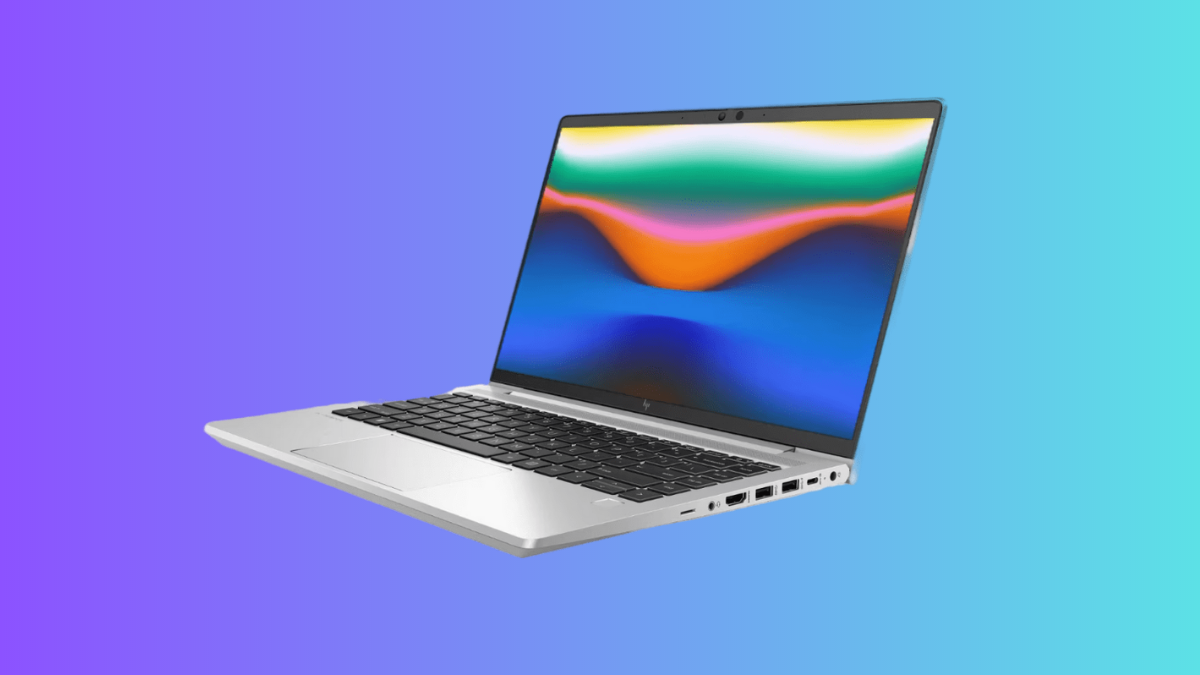
Heating issues are common among laptops. But, if your laptop keeps overheating for a longer period, it can damage internal components. There fixing the overheating issue is not a choice. Many HP Elitebook users are facing overheating issues on their laptops. If your HP Elitebook has overheating problems or the device shuts down after overheating, this post has all the details you need to know.
In this troubleshooting guide, we have jotted down the 8 most effective solutions to fix overheating issues on your HP laptop.
Quick Solution
If your laptop is overheating for hours, turn it off immediately and place it in a cool environment. Do not put it on your lap or on the bed. Instead, place it on a desk.
Once your laptop is cooled down, turn it on and apply these solutions to completely remove the heating issues.
How to Fix HP Elitebook Overheating Problem
Apply these solutions to completely remove the heating issues from your laptop.
Solution 1: Manually Remove Unnecessary Task
Windows is intelligent enough to efficiently manage the processes. However, at times, it unnecessary processes keep running in the background taking up memory and CPU. When there’s high CPU and memory usage, the laptop generally starts heating up. You should manually remove unnecessary tasks using Task Manager.
1. Type Task Manager in the Windows search box at the bottom and press Enter.
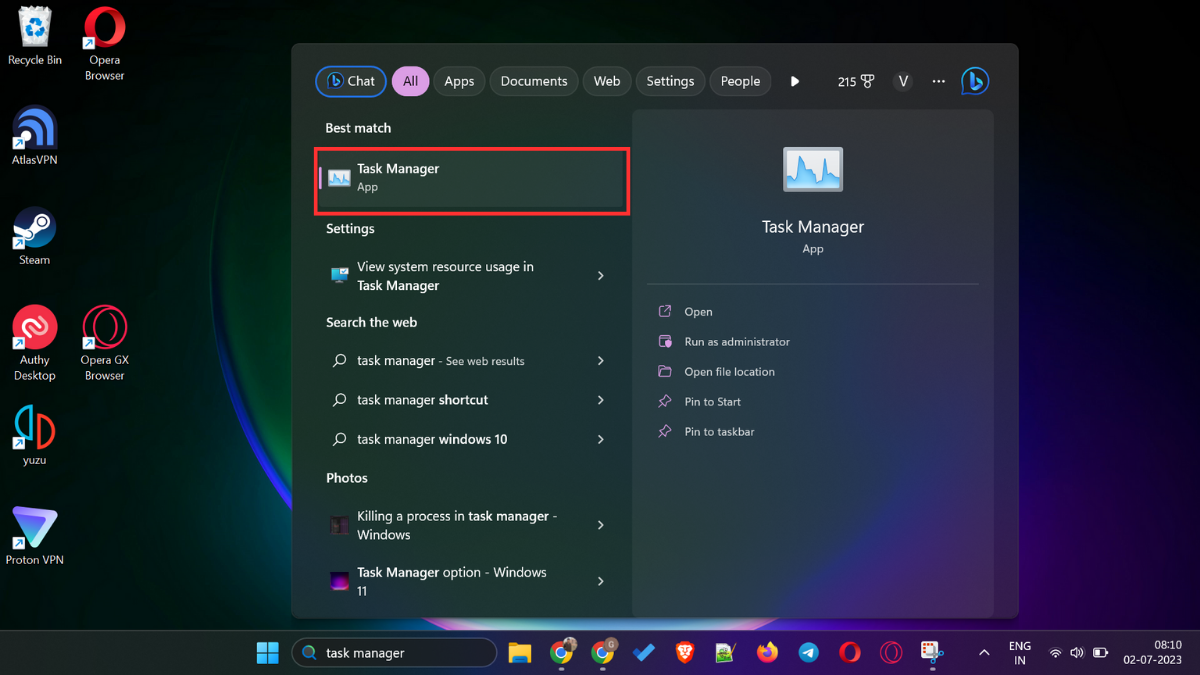
2. Right-click on unnecessary task/process and select End task.

3. Repeat step 2 for all unnecessary tasks.
Only remove those tasks which you know about. If you are not sure about any task whether to remove it or not, leave it. Removing tasks will quickly reduce CPU and memory usage, resulting in less overheating.
Solution 2: Clean the Vents and Check the Cooling Fan
Windows intelligently manages heat on your laptop. When the device starts heating up, it automatically starts the cooling fan to dissipate the heat. If you haven’t cleaned the vents in a while, dust, and debris may be blocking the airflow.
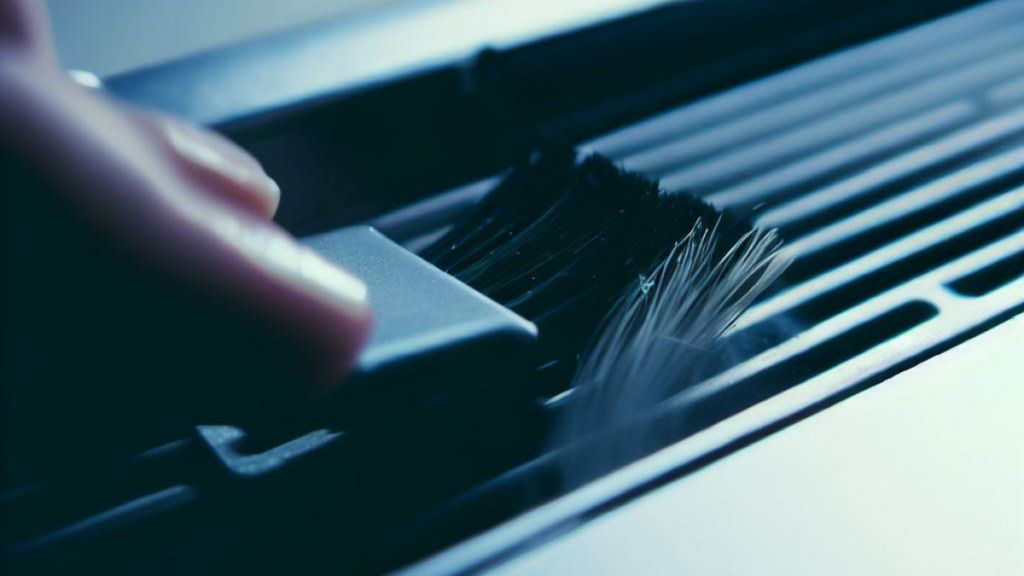
If the hot air can’t flow outside properly, your laptop will overheat. You should therefore clean the vents regularly using a soft brush. Do this now, but carefully. You can get a dust cleaner for this purpose.
Next, we would also want to check if the cooling fan is working. When your laptop is overheating, get your ears close to your laptop and listen if the fan is spinning. If you can’t hear the fan sound, probably it is not working. You should contact a technician to get it fixed or contact HP support.
However, if the fan is working but the overheating issue persists, you can use HP CoolSense, a cooling pad, or reapply thermal paste. Keep reading to know more about these solutions.
Solution 3: Disable Startup Apps
Startup apps, as the name suggests, launch as soon as your Windows laptop boots up. If there are a high number of startup apps on your device, they can put a significant load on the CPU and RAM, resulting in overheating.
You should disable unnecessary startup apps on your PC.
1. Press Windows + X buttons together and select Task Manager.
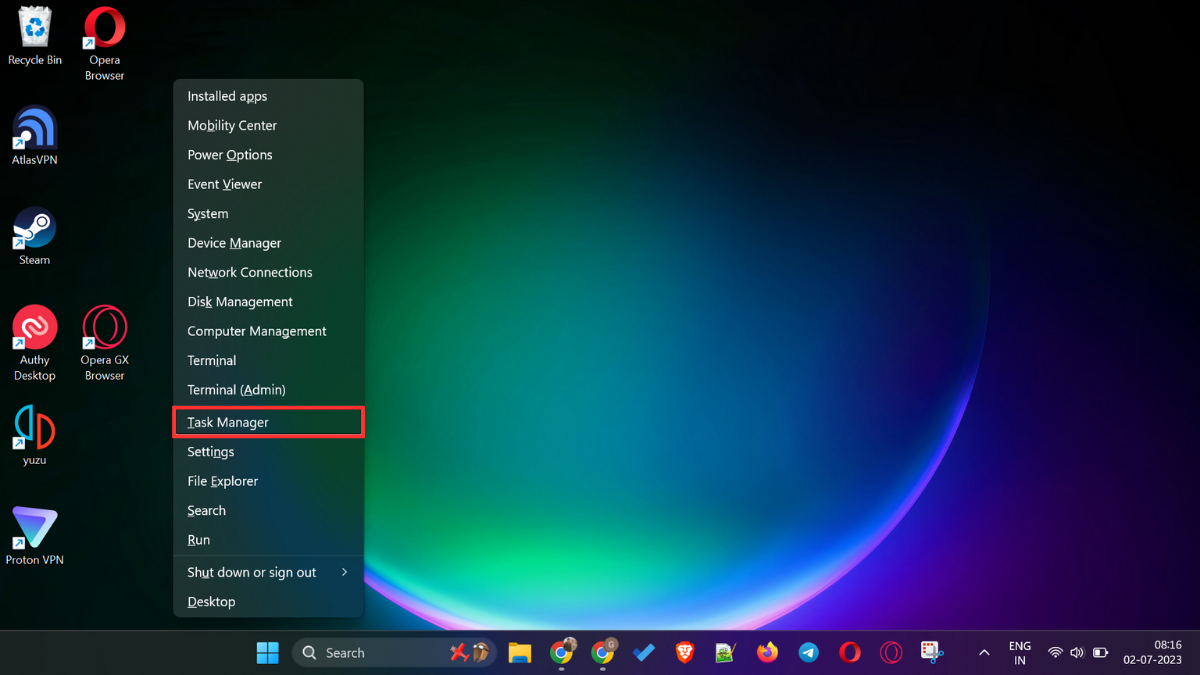
2. Tap on Startup apps.
3. Right-click on an unnecessary startup app and select Disable.

4. Repeat step-3 to disable all unnecessary apps from launching automatically at the startup.
After disabling all unnecessary startup apps, reboot your computer.
Solution 4: Change Power Mode
Changing the power mode can help you reduce the temperature. Windows laptops have three power modes – Best power efficiency, Balanced, and Best performance.
When your laptop is heating up, it’s recommended to use the Balanced mode. If it doesn’t work, try switching to the Best power efficiency mode. Windows will automatically kill unnecessary processes to get more battery life.
1. Press Windows + X buttons together and select Settings.

2. Tap on Power & battery.
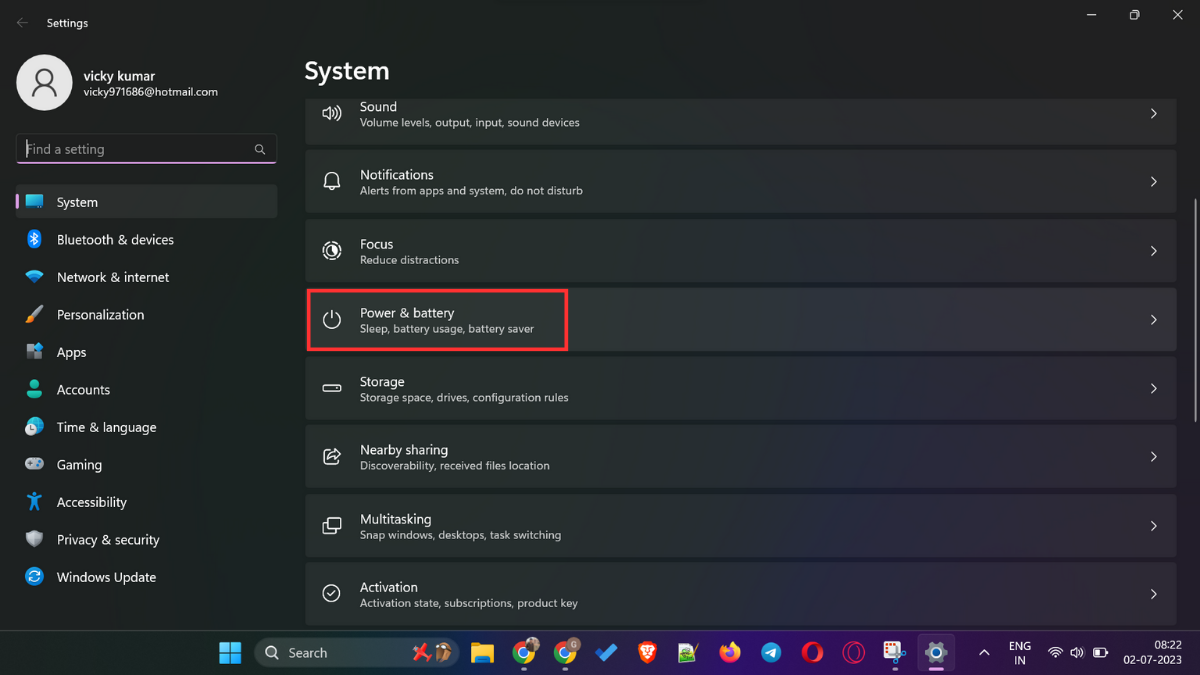
3. Click the dropdown next to Power mode and select Balanced.
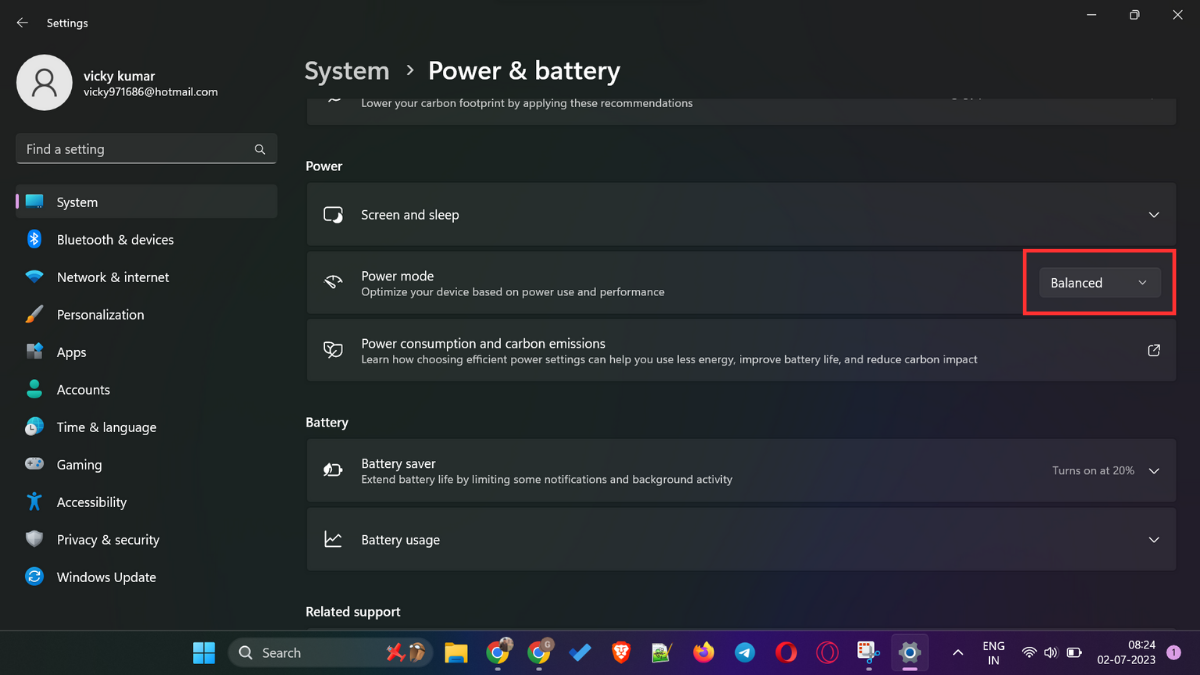
Solution 5: Check for BIOS Update
BIOS (Basic Input-Output System) on your laptop is responsible for managing a lot of tasks including thermal management. Updating the BIOS may include bug fixing related to temperature and fan speed, which could fix the overheating issues.
Here’s how to update BIOS on your HP laptop:
1. Go to HP software & drivers download page.
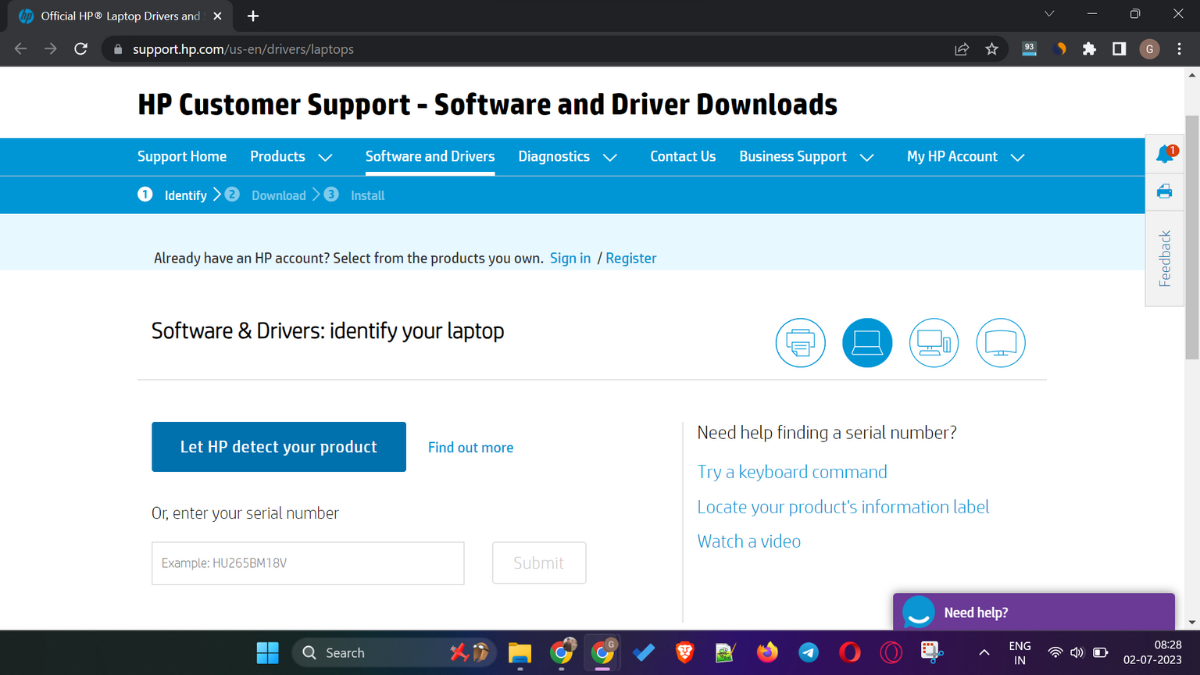
2. Type your device name in the search box and select the correct device from the dropdown options.
3. Select your Operating system and hit Submit.
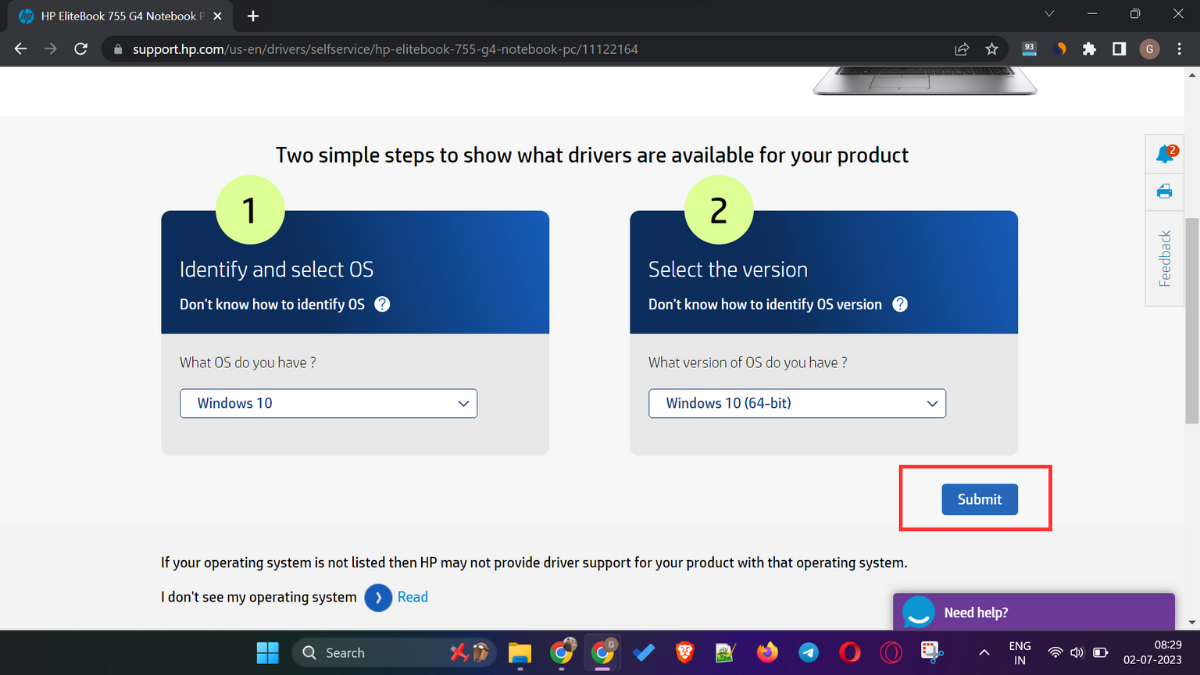
4. Tap on + All drivers to see all drivers for your laptop.
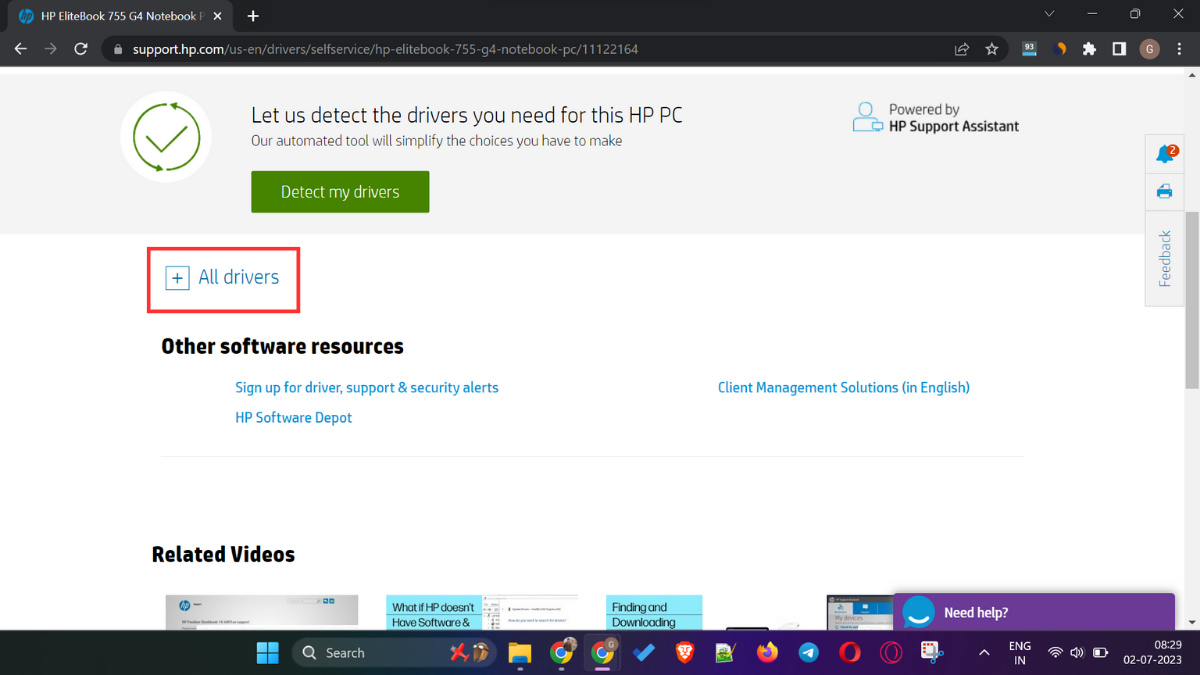
5. Download the BIOS and install it.
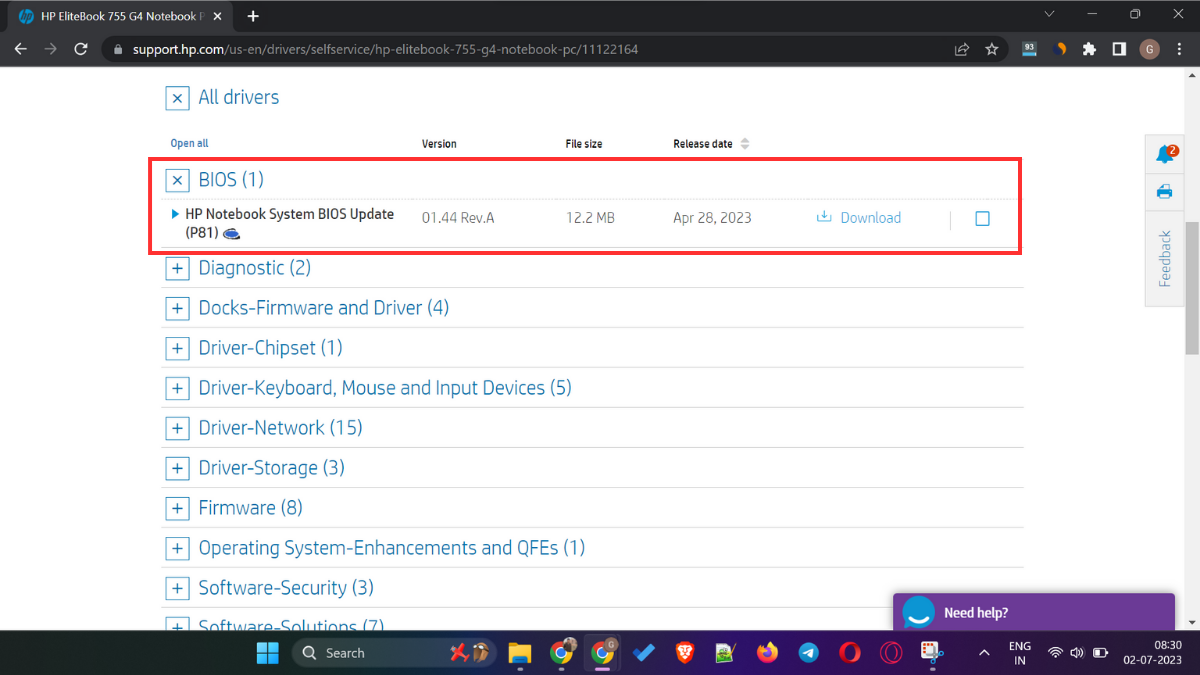
Make sure your HP laptop has at least 50% battery before you update the BIOS. It’s recommended to connect the charger during the BIOS update.
Solution 6: Get a Cooling Pad
If you use the laptop for long hours, the device may generate a lot of heat. You should be using a cooling pad to maintain the optimal temperature.
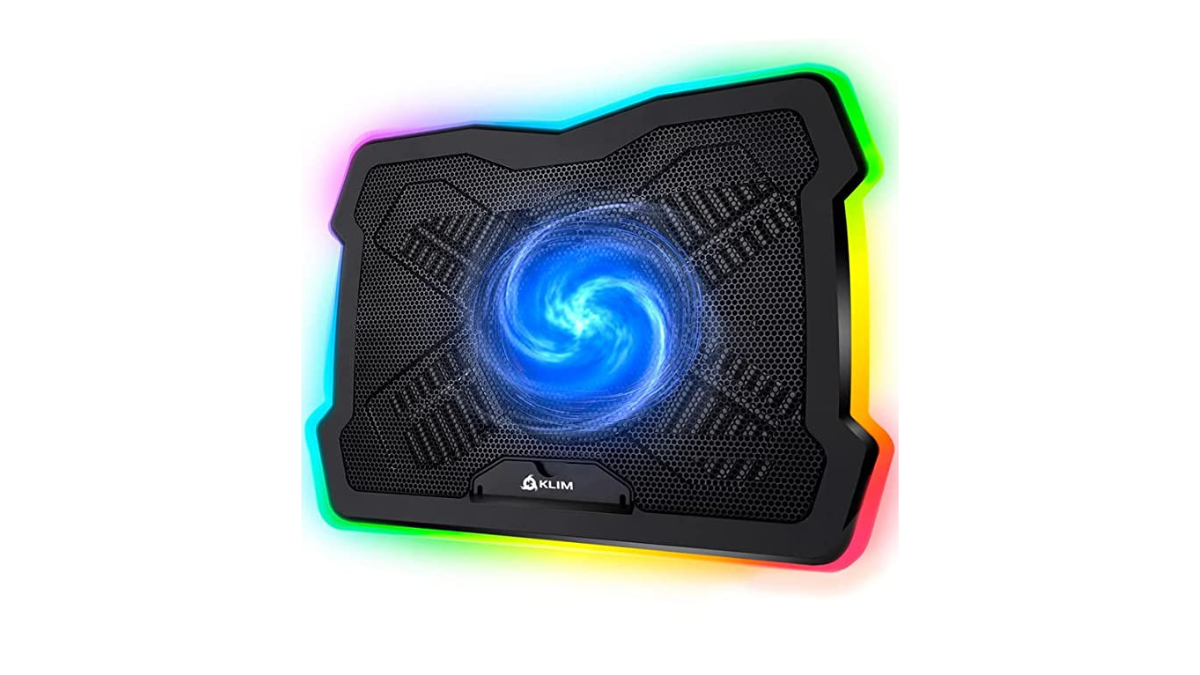
A good cooling pad typically has an elevated design and built-in fans to improve the airflow. It gives additional space to the laptop’s downside where CPU and GPU are located for better airflow, resulting in good heat dissipation.
Havit HV-F2056 Laptop Cooling Pad – Check this out on Amazon
Solution 7: Reapply Thermal Paste
If you have been using your HP Elitebook for so long, the thermal paste may have degraded or dried out. It’s a material applied between the CPU and heat sink to ensure optimal temperature around the CPU. When the thermal paste gets degraded, there will not be better heat conductivity, thus resulting in overheating issues.
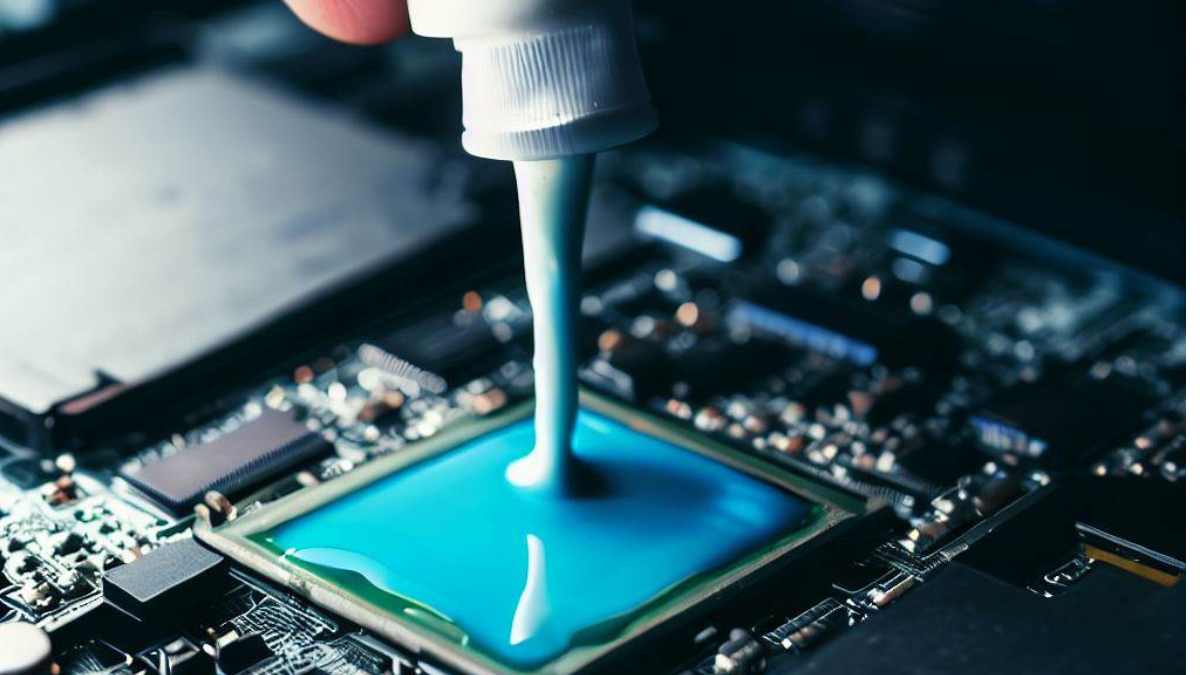
You should reapply the thermal paste. If you haven’t done it before, take help from a certified technician to avoid any damage.
Solution 8: Upgrade Hardware
If your HP Elitebook still has heating issues, you need to upgrade the hardware. One of the best ways to fix the overheating issue is to increase the RAM. If it does not work, you may need to upgrade the CPU as well.
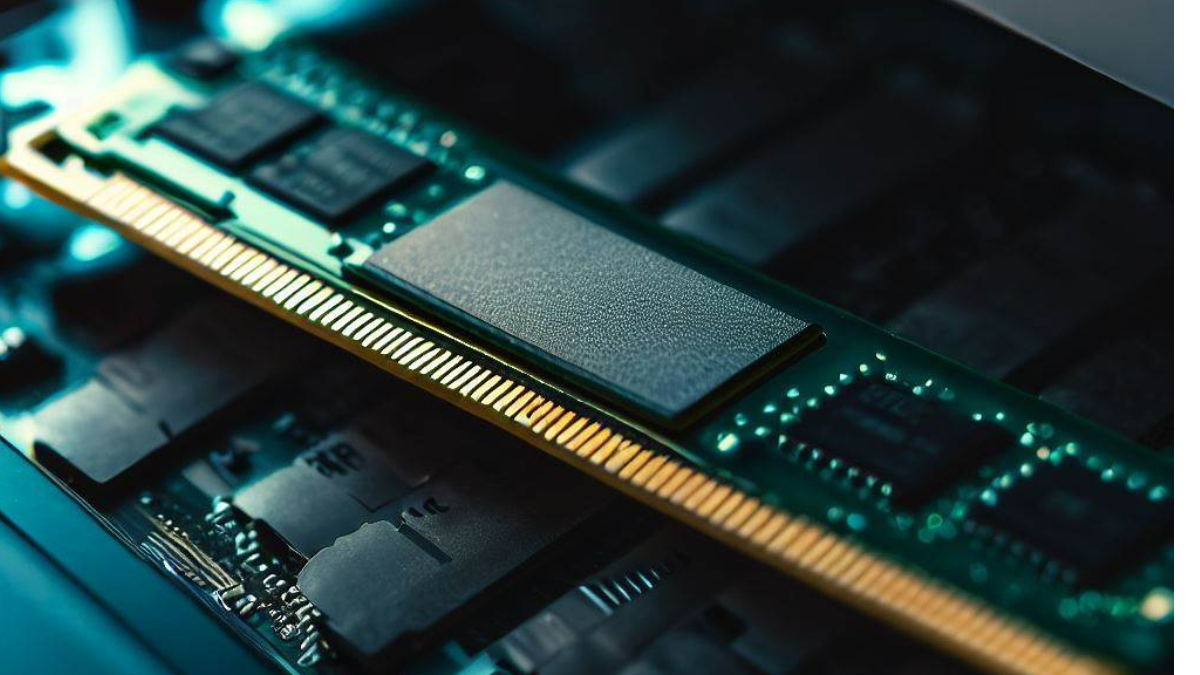
Every CPU has some limitations. If you are trying to run heavy software or game on a mediocre CPU, the device will generate a lot of heat.
Wrapping It Up
If your HP Elitebook is overheating, try to fix the problem as quickly as possible. A prolonged overheating issue can damage the components. In this guide, we shared with you the best ways to fix overheating issues on your HP laptop. Go ahead, apply them, and keep your laptop at optimal temperature.
You May Also Like to Read:
1. Best Opera GX Settings for Low-End PC
2. Laptop Heating Up in Sleep Mode, How to Fix?
3. How to Get Full Internet Speed on TP-Link Router?






